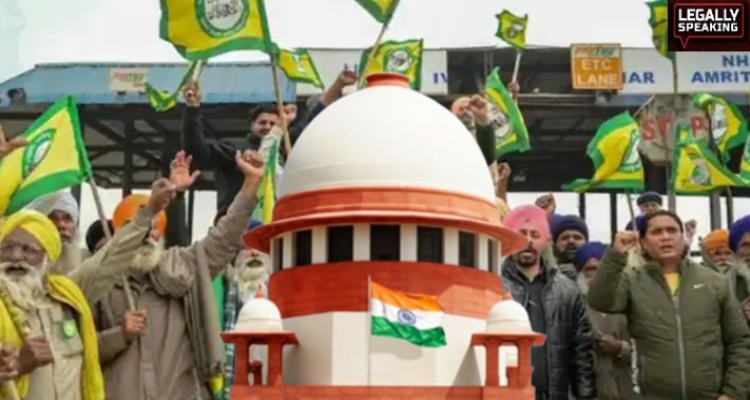
The Supreme Court emphasized the gravity of issues surrounding the farmers’ protest on Monday and urged a litigant to refrain from filing petitions solely based on newspaper reports for the sake of publicity.
A bench of Justices Surya Kant and KV Viswanathan granted petitioner Agnostos Theos, the Managing Director of the Sikh Chamber of Commerce, permission to withdraw his plea. The plea had alleged the violation of rights of peacefully protesting farmers by the Centre and certain states.
During the outset of the hearing, Theos’s counsel expressed the intention to amend the petition and requested its withdrawal. Justice Kant cautioned against filing petitions solely relying on newspaper reports for publicity, stressing the seriousness of such matters. The bench highlighted that only individuals who are genuinely serious and committed should file such petitions, noting that the High Court is already dealing with the issue.
The bench informed the counsel that the High Court has already issued certain directions regarding the matter and advised him to exercise caution in the future. The counsel was encouraged to conduct thorough research, considering the complexity of the issues involved. Subsequently, the bench permitted the withdrawal of the petition.
In the plea, Theos claimed that the Centre and some states had issued threats and bolstered security at the borders of the national capital following protests by farmer unions demanding legal assurance for minimum support price (MSP) and implementation of the Swaminathan committee’s recommendations.
The plea asserted that some protesters were arrested and forcibly detained by various state governments, while the Centre imposed prohibitory measures such as blocking social media accounts, rerouting traffic, and closing roads. Allegations were made against the governments of Haryana, Punjab, Uttar Pradesh, and Madhya Pradesh for employing aggressive tactics such as tear gas, rubber bullets, and pellets against the farmers, resulting in serious injuries.
The plea further claimed that the fortifications at Delhi’s borders created a hostile environment, depriving farmers of their democratic right to protest. It sought directions to the Centre, the four states, and the National Human Rights Commission to consider the reasonable demands of protesting farmers and ensure fair treatment and free movement.
Additionally, the plea requested a report on alleged human rights violations by the police and adequate compensation for victim farmers and their families.




